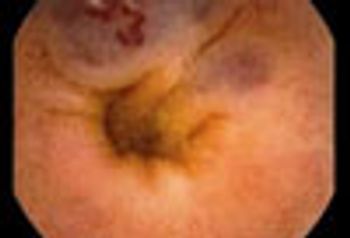
All News


This year's ACG Annual Scientific Meeting will be held October 11-16, 2013 in San Diego, California. ACG 2013 will deliver an overview of recent advances in the diagnosis and treatment of various GI disorders, ranging from ulcerative colitis to fructose intolerance in children. ConsultantLive has captured the highlights of the meeting with reports on key presentations.

Early identification of childhood disorders is essential for achieving the best possible outcomes. This week’s photo quiz tests your ability to recognize some of the possible presentations.

Will the placebo effect be wiped out once health care decisions are fully digital?


Curing medical excess will not be easy. Harmful overtesting and overtreating is promoted and protected by the enormous economic and political power of the medical industrial complex. Here's just a beginning list of what needs to be done . . .

The American College of Emergency Physicians 2013 Scientific Assembly features updates on the most pressing issues facing medicine today with a wide offering of courses and workshops on how to manage conditions from cardiac arrhythmias and endocrine and metabolic crises to trauma, dermatologic conditions and sports injuries. The editors at ConsultantLive have captured the highlights of the meeting with reports on key presentations.

BRBNS is a rare GI disorder characterized by distinctive cutaneous and GI venous malformations that can lead to occult or massive GI bleeding.

Incretin drugs, which offer ease of use, very little hypoglycemia, and no weight gain (or even weight loss) seem to be an ideal therapy. But 80% to 90% of patients don’t stay on them. Why not?

Much of the wasteful extravagance of US health care comes from the secrecy that surrounds its pricing. You wouldn't think of buying a car or a house or even a bar of soap without knowing what is the price and calculating its value to you. How about using the Internet to introduce price competition?

Statins used for primary prevention in elderly patients result in a significant reduction in MI and stroke.

(AUDIO) Now that guidelines mandate testing all adults for HIV status, what are the best ways to convey the results of this important but often sensitive test? Listen as the co-director of Emory University's Center for AIDS Research offers insights for effective communication on this topic.

Emergency contraception is available in drugstore aisles nationwide but the easy access may be at the expense of important family planning education.

Rhabdomyolysis is linked to infection in up to 31% of cases. However, only 19 cases of rhabdomyolysis related to E coli infection have been reported.

Urinary protein levels may be an early marker of future cognitive decline in patients with type 2 DM and normal kidney function, according to a new study.

Guideline recommendations are not only frequently being ignored, but the number of physicians not using them is growing.

Schools of thought on their relative value differ greatly. Fortify your knowledge of the pros and cons with this baker’s dozen of facts and figures.

It is vital to acknowledge trusted sources and avoid being misguided by faulty research and sensationalized headlines.

Coinfection with HIV and HCV presents a problem: many of the drugs used routinely to treat HIV have adverse interactions with the newer, and older, treatments for HCV.

Elevated serum gastrin will help confirm the presence of gastrinoma or multiple endocrine neoplasia type 1.
